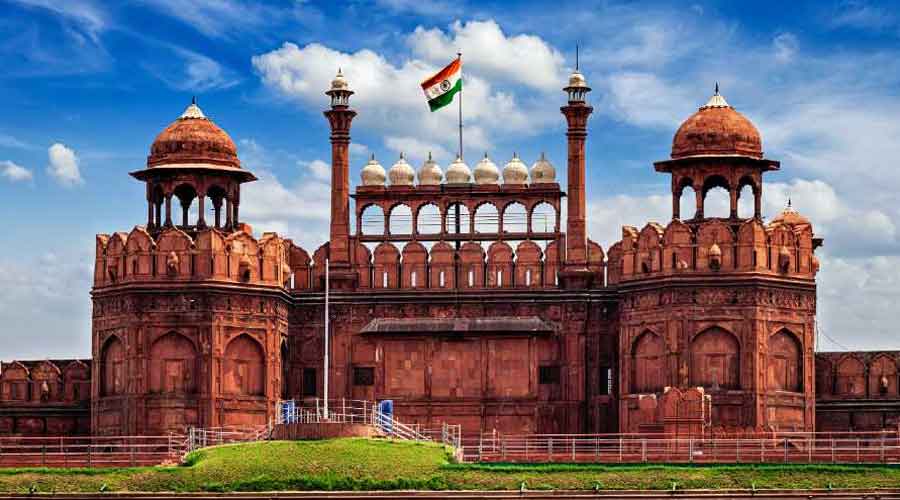Syed Ali Shah Geelani, the patron protagonist of Kashmiri secession, is 91 and in cascading poor health. He barely ever speaks out or issues a statement. When he does, the communiqué comes from proxy social media handles that operate from Pakistan-occupied Kashmir. His sons, one a doctor, one a university teacher, are often the first ones to issue disclaimers to the local police absolving themselves of any association. The odd hartal or protest call that gets issued in the senior Geelani’s name goes mostly unheeded.
Ashraf Sehrai, Geelani’s most prominent associate, died while in jail as a Public Safety Act detainee this May of Covid-related complications.
Moulvi Umer Farooq, head of the moderate faction of the secessionist Hurriyat, has remained under house arrest for nearly two years and refrained from any of the activities that were his calling card. The public prayers of his outfit, the Awami Action Committee, that the Moulvi be allowed to conduct prayers at Srinagar’s Jama Masjid have gone unheard.
Yasin Malik of the Jammu and Kashmir Liberation Front (JKLF) is in Tihar jail, charged with armed assault on an Indian Air Force party in 1990; four personnel died in the attack. Malik has the company there of another separatist, Shabbir Shah.
Masarat Alam, another feisty separatist, lies bundled in jail on a long catalogue of charges that include sedition and violence against the state; Aasiya Andrabi, firebrand militant of the Dukhtaran-e-Millat, and her husband Qasim Faktoo, one of the founders of the Hizbul Mujahideen, are also behind bars, charged with waging war on the state.
The lead actors of Kashmiri separatism have been rendered ineffectual, one way or another. Those that still have the freedom of their homes — Prof. Abdul Ghani Bhat and Moulvi Abbas Ansari among them — seldom risk going public with the views they’ve long held close and fought for.
“The realisation has gone home that it is no longer possible to take liberties beyond a point and not suffer consequences,” a senior police officer told me. “This is a very different dispensation, it has very low, or no, tolerance for any appeal or action that challenges the state or the legitimacy of India. The recent raids on suspected leaders and activists of the Jamat-e-Islami across the state were part of the exercise to underline that. Miscreants are aware they are under keen watch and will not get away with actions that undermine the nation.”
But to interpret the blow to separatists as a sign that separatist sentiment in the Valley has been whittled would be to grossly misread Kashmir’s ground reality. As one retired bureaucrat who spent a lifetime espousing India’s case as a secular democracy, told this paper: “How do you even expect the Kashmiri to like you, especially after what happened in August 2019? We were made to feel deeply hurt and humiliated, reduced as a people. But that was not all. Our humiliation and our chaining became a thing to rejoice all over the country. That celebration of our suffering cannot be a thing to forget.”
It is no surprise that most Kashmiris are reluctant to talk frankly about how they feel; it comes from a deep sense of resignation and, in no small measure, out of fear. “We’ve been knocked into levels of despair that we see no way out of,” a shop-owner in Polo View, Srinagar’s fashionable shopping avenue, told me. “And why would I risk what I still have opening myself up to you?”
Then, he suddenly turned acerbic out of not being able to resist it. “I can tell you happy and lovely things, as you often hear being broadcast on television channels, but they will all be lies, or things I have been forced to say by someone in authority. We do not even have the freedom to shut our shops when we feel like shutting them as an expression of our anger; the police will heckle and threaten us into lifting shutters and then the channels will show how Kashmir has returned to being a place of peace and good cheer. All lies!”
The eve of Independence Day has for a long time been an uneasy moment in the Valley, laden with apprehension over what untoward or ugly turn the slightest provocation could trigger. This year, the administration has ordered teaching and non-teaching staff at schools across the Union Territory to turn up for work, ceremonially hoist the national flag, and demonstrate proof of it. School heads have also been instructed to call students to school (10 per cent in view of Covid restrictions) and make them learn the national anthem which must be sung in each institution. “But what really are we meant to celebrate?” a school teacher asked, palpably outraged at the order. “Our chaining and our gagging? Is that what Independence Day means? When people wish to celebrate they do it with the fullness of their hearts, you don’t require government orders to be proud of your nation.”
Separatist spearheads may lie blunted in Kashmir, but not separatism as widespread sentiment; nor the Kashmiris’ deep sense of anger and disdain.











